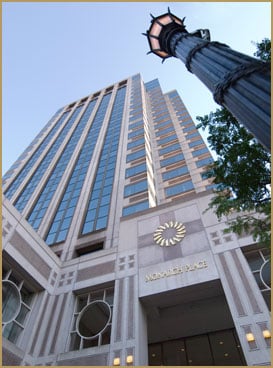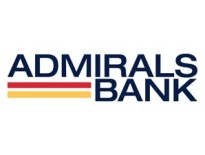The state of Massachusetts hasn’t seen a de novo bank application in roughly a decade, largely because the state’s 124 resident banks have created a market categorized by fierce competition.
So when Green Apple Bank & Trust filed a de novo bank application on April 27 to create a bank situated in Western and Central Massachusetts, the proposed institution’s leader, Jeffrey Sullivan, admitted that his team “probably didn’t pass a sanity check.”
But Sullivan also believes there is an opportunity for an experienced team to bring a technologically-savvy institution that caters to a new generation of customers, has close ties to the business community and a mission that involves helping the less banked.
“It is a crowded marketplace, but I think we can create a vehicle that the younger generation of business owners, investors and customers can get behind,” Sullivan, a longtime community banker in New England, told Banker & Tradesman. “Our model is a hybrid between more traditional banking with full service branches, but those branches can cover a much wider area because of modern technology.”
While Green Apple Bank & Trust is the name of the de novo on the application, the group is planning to amend that and change the bank’s name to New Valley Bank & Trust, Sullivan said.
The bank will be a full-service community bank based in Springfield offering the retail and commercial banking services typically found in traditional community banks, with an emphasis on commercial lending and commercial real estate lending.
The Bank’s Offerings
While the new institution will look like other community banks, Sullivan said he wants it to have a strong online presence and a new technology platform.
How the bank executes this goal will be critical to its success, said David O’Connell, senior analyst at the Boston-based Aite Group.
“If they are going to get a return for investors, they do have an opportunity,” he said. “But to win, they will need to bring technology as de novo as they are.”

Bram Berkowitz
This means technology that is as disruptive as possible – think along the lines of Uber, Amazon and Airbnb. That is not an easy task, said O’Connell, but it is easier for a new bank to implement that kind of technology as opposed to an existing bank that must reconfigure its core processing systems.
Sullivan also wants to introduce a “safe” checking account to help the unbanked and underbanked populations in the area.
The account would offer companion savings for customers who wish to protect against overdraft fees. The account would come with most of the same services as a traditional checking account but would not come with checks or the ability to overdraw the account at an ATM or merchant point of sale.
The “safe” account, which is based on products offered by large banks but less common in community banks, is one of the driving forces behind the de novo.
Sullivan said that the planned bank’s proposed chairman of the board of directors, Frank Fitzgerald, with whom he worked with at the former Bank of Western Massachusetts, has gotten more and more interested over the years with those in the community that struggle to access banking.
“When he approached me to talk about this, he was thinking more about a legacy for helping the community in terms of increasing financial stability and literacy,” said Sullivan, the former president of the Hartford-based United Bank. “The vibe in the community is that people are looking for more financing opportunities.”
Nearly 8 percent, or nearly 14,000 households in Hampden County are unbanked, and 16 percent, or 28,128 households, are underbanked, according to the Western Mass. chapter of Bank On.
The product “sounds great on paper,” said O’Connell. “But anytime you tell someone there is no overdraft fee, you make it more likely that that depositor will overdraft.”
The risk there is that regulators might consider an overdraft charge as a loan, he added.
Sullivan knows the “safe” account won’t pay the bills, but he hopes the account might attract other customers, such as upwardly mobile Millennials, who want the guaranty of knowing they will not be charged a $35 fee for a simple mistake.
Discussions about introducing a new bank to the area have been ongoing for several years, but more consolidation across the industry created an opening.
Westfield Bank completed its acquisition of Chicopee Savings Bank in 2016, and last year, Berkshire Bank moved its headquarters from Western Massachusetts to Boston.
Sullivan said the team wanted to make sure there was a desire for the bank in the area. Before submitting its application, they pitched the idea to younger business owners in the area and received a good reception.
Sixty investors wrote checks for $50,000, allowing the group to raise $3 million. Most of these investors were business owners under the age of 45, said Sullivan.
Now, the team will look to raise at least another $22 million, but before they can begin to fundraise they must go before the state’s board of banking corporations, which they hope to do in June.
If everything goes according to plan, Sullivan said the bank could open sometime in the fourth quarter of this year.




 |
| 


